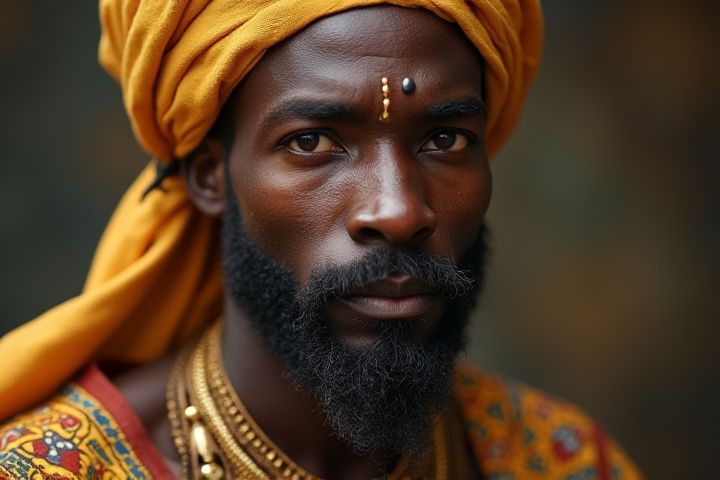
Nigeria is a religiously diverse country, with Islam and Christianity being the two predominant religions. Islam is primarily practiced in the northern regions, where communities observe Islamic teachings and participate in practices such as prayer and fasting during Ramadan. Christianity is mostly found in the southern and central parts, encompassing various denominations, including Catholicism, Pentecostalism, and Anglicanism. Indigenous African religions also continue to thrive, contributing to the country's rich spiritual landscape. Understanding Nigeria's religious context is vital for appreciating its cultural heritage and social dynamics.
Christianity
Christianity in Nigeria represents one of the largest religions in the country, forming a significant part of the cultural and social landscape. Predominantly found in the southern and central regions, Nigerian Christianity encompasses various denominations, including Catholicism, Anglicanism, and numerous Pentecostal movements. The religion plays a vital role in community life, influencing education, healthcare, and social services. You may encounter vibrant worship practices and extensive church activities that reflect the diversity and dynamism of the Christian faith in Nigeria.
Islam
Islam in Nigeria is predominantly adhered to by the northern regions, where about half of the population identifies as Muslim. The practice of Islam in Nigeria incorporates both Sunni and Shia branches, with Sunni Islam being the most widely followed. The influence of Islamic culture in Nigeria is evident in various aspects of daily life, including education, governance, and social norms. Major Islamic festivals such as Eid al-Fitr and Eid al-Adha are celebrated with great enthusiasm, reflecting the community's deep-rooted faith and social cohesion.
Traditional African Religions
Nigeria is home to a rich tapestry of Traditional African Religions, often collectively referred to as Indigenous or Ethnic Religions. These belief systems are characterized by the veneration of ancestors, nature, and various deities associated with specific elements like water, earth, and the sky. Ritual practices, such as dance, music, and sacrifices, play a crucial role in community life, reinforcing social cohesion and cultural identity. Understanding these indigenous beliefs enhances awareness of Nigeria's diverse cultural heritage and the role of spirituality in the lives of its people.
Syncretism
Nigerian religion often demonstrates a rich tapestry of syncretism, blending indigenous beliefs, Christianity, and Islam. This fusion results in unique practices and traditions, where local deities coexist with biblical and Quranic figures, fostering a diverse spiritual landscape. Many communities celebrate festivals that incorporate elements from multiple faiths, illustrating their adaptive nature and the importance of cultural identity. You will find that this syncretic approach not only enhances religious harmony but also reflects the resilience and creativity of Nigerian society.
Pentecostalism
Pentecostalism is a vibrant branch of Christianity that has gained significant traction in Nigeria, characterized by its emphasis on personal experiences of faith, spiritual gifts, and vibrant worship practices. Nigerian Pentecostal churches, such as the Redeemed Christian Church of God and Winners' Chapel, attract millions, offering dynamic services filled with music, prayer, and preaching focused on prosperity and miracles. This movement encourages believers to pursue a personal relationship with God, often resulting in transformative experiences and community engagement. As a key component of Nigeria's religious landscape, Pentecostalism reflects the country's diverse spiritual heritage and its ongoing evolution in contemporary society.
Sunni Islam
Sunni Islam is the predominant religion in Nigeria, where it is mainly practiced by the Muslim population in the northern regions of the country. This branch of Islam emphasizes following the teachings of the Prophet Muhammad and the consensus of the Muslim community, known as the Sunni orthodoxy. The Nigerian Sunni community is diverse, encompassing various cultural practices and interpretations of Islamic law, influenced by local traditions. Major religious events, such as Ramadan and Eid al-Fitr, are widely celebrated, underscoring the significant role of faith in daily life and community cohesion.
Protestantism
In Nigeria, Protestantism is a major branch of Christianity characterized by a diverse range of denominations, including Anglican, Baptist, Methodist, and Pentecostal churches. These Protestant communities emphasize the authority of Scripture, personal faith in Jesus Christ, and the importance of community worship. The growth of Protestantism in Nigeria is significant, particularly among the youth, who often engage in vibrant worship and social activism. Understanding this religious dynamic is essential for appreciating Nigeria's cultural and social landscape, as these communities play a crucial role in addressing social issues and fostering community development.
Animism
Animism in Nigeria refers to the belief system that attributes spiritual essence to natural objects and entities, reflecting a deep reverence for nature and ancestral spirits. It plays a significant role in the cultural practices of various ethnic groups, such as the Yoruba, Igbo, and Fulani, where rituals and ceremonies often center around sacred trees, rivers, and mountains. This spiritual worldview intertwines with daily life, influencing social values, agricultural practices, and community cohesion. Many individuals may incorporate animistic beliefs alongside other faiths, creating a rich tapestry of religious expression in Nigeria.
Anglicanism
In Nigeria, Anglicanism is a prominent branch of Christianity that is part of the worldwide Anglican Communion. It emphasizes the traditions of the Church of England, combining elements of Catholic and Protestant practices. The Church of Nigeria, founded in 1979, plays a vital role in the spiritual life of millions, with a strong focus on evangelism, social justice, and community service. Anglican worship in Nigeria often features vibrant liturgies that include music, contemporary expressions of faith, and culturally relevant teachings, attracting a diverse congregation.
Sufism
In Nigeria, Sufism is primarily represented through various Islamic orders, known as Tariqas, which emphasize spiritual growth and a direct personal connection to God. The Tijaniyyah and Qadiriyyah are the most prominent Sufi orders, each advocating devotion, meditation, and the chanting of divine names, or Dhikr. These practices foster communal harmony and support social justice efforts, deeply intertwining spirituality with cultural identity. Your understanding of Sufism in Nigeria reveals its vital role in shaping the nation's religious landscape, influencing both daily life and broader societal values.
